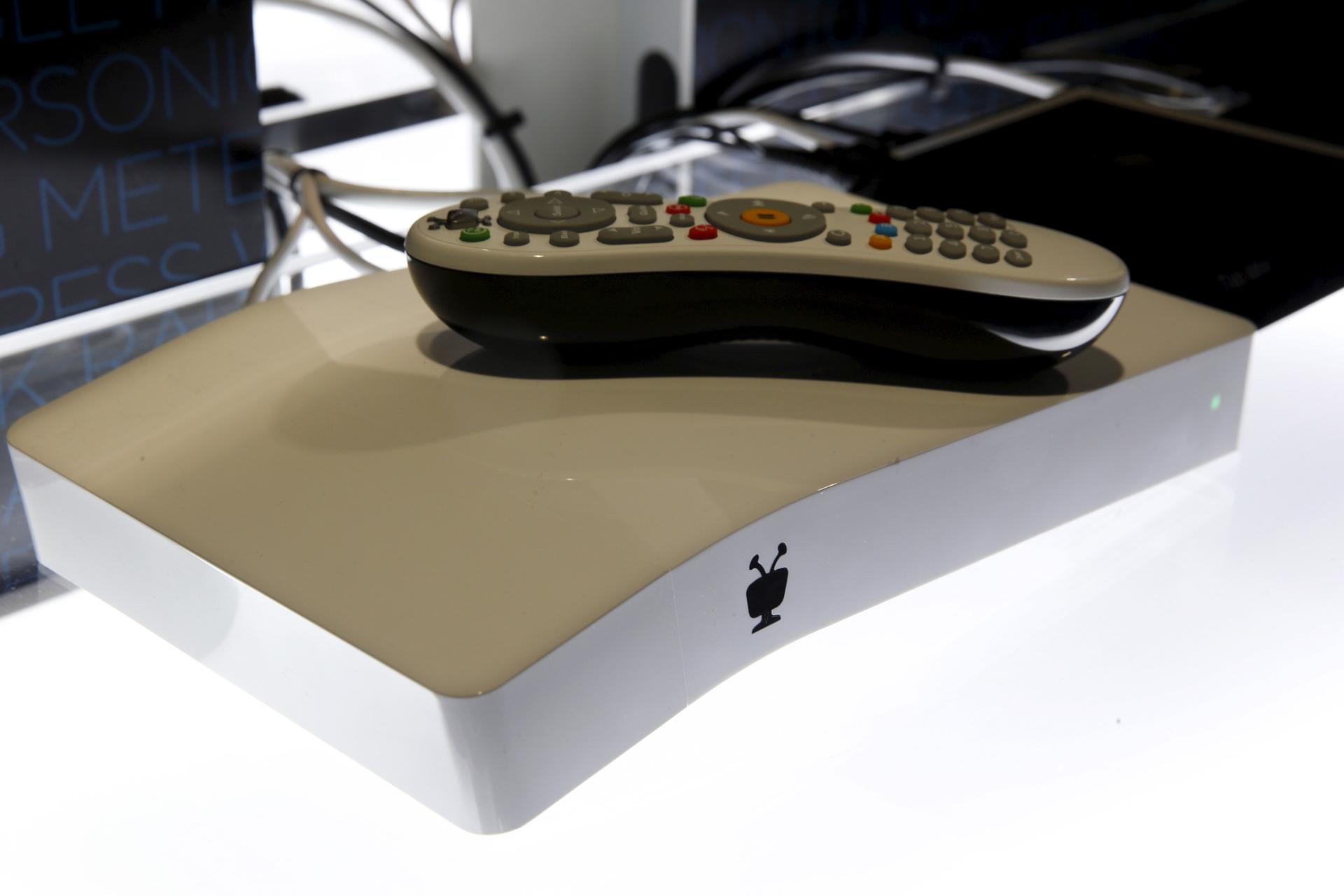The FCC wants to make it easier for you to use your own cable box
A Tivo Bolt is displayed during the 2016 CES trade show in Las Vegas, Nevada January 7, 2016. The $299.00 unified entertainment system combines a cable box, a DVR and a streaming box into one device.
Millions of Americans subscribe to cable and pay all the fees associated with those subscriptions: installation fees, service charges and monthly rental fees for the cable box, the gatekeeper to all that binge watching.
Last month, however, the Federal Communications Commission put out a proposal to open the market for companies other than cable providers to create those cable boxes that can connect to pay-TV service.
“What the FCC wants to do, basically, is open up competition in the cable box base right now,” says Wired contributing editor Brian Barrett. “Ninety-eight percent or so of US cable customers get their boxes directly from the cable company that they’re subscribed to and many of those people don't even know that they … could have an option if they wanted one. It's sort of a monopolistic system in a system that's already kind of monopolistic.”
Opening up competition in the cable box base would potentially make it easier for outside manufacturers to create cable boxes, as well as take content from the cable companies and present it in a way that might be better, and give more options to customers.
It’s no surprise that cable companies object to the idea of regulation. What is surprising, Barrett says, is that not all of their objections are centered on the fact they might lose money.
“They're saying two things," Barrett says. "First, basically, we shouldn't even be regulating cable boxes in the first place. Cable boxes are an outdated technology. We should be more focused on what comes after the cable box. And, secondly, they're concerned that some programmers are concerned that their [channels], especially ones with smaller audiences, might somehow get left out of an arrangement, should a company like Google come in and say 'we're only going to show these channels to our customers'.”
So why is the FCC concerned with a technology that is quickly losing ground as the trend of “cord cutters” grows?
“There are still millions and millions of people who subscribe to cable through traditional means,” Barrett says. “I think the FCC's position is, ‘Look, yes, there will be something coming to replace the cable box. That's already happening. But people will still be using cable boxes for at least a decade. We may as well try to protect and give those people options.”
Meanwhile, tech companies’ reactions to the proposed changes have been surprisingly mixed. Some, like Google and TiVo, have been vocally in favor, but others, such as Roku, have expressed skepticism.
“They're worried that the FCC guidelines will be too strict,” Barrett says, “And that that might obviate innovation that happens in other fields in the same way that 10 years ago you might not have predicted that a Roku could exist at all. They're worried that the FCC might be legislating what a cable box can be in a way that cuts off a potential for what might be a solution 10 years from now.”
Reactions to the FCC’s proposal from programmers — especially those that target minority groups — has also been mixed. They say they have agreements with cable companies that guarantee their programming will be distributed, and consequently they'll have guaranteed ad revenue.
“Their concern is that if … Google comes out with a cable box, maybe Google decides, ‘You know what, it's easier if we just show our customers the 40 top channels that we know that through our data that they would like," Barrett says. "And so they're worried about getting left out of the channel lineup or buried so deep in the channel lineup that they'll never get discovered. And they're worried that a company like Google which has a lot of expertise in advertising will end up selling ads against their products surreptitiously.”
This article is based on an interview that aired on PRI's Science Friday.
We want to hear your feedback so we can keep improving our website, theworld.org. Please fill out this quick survey and let us know your thoughts (your answers will be anonymous). Thanks for your time!
